Industries
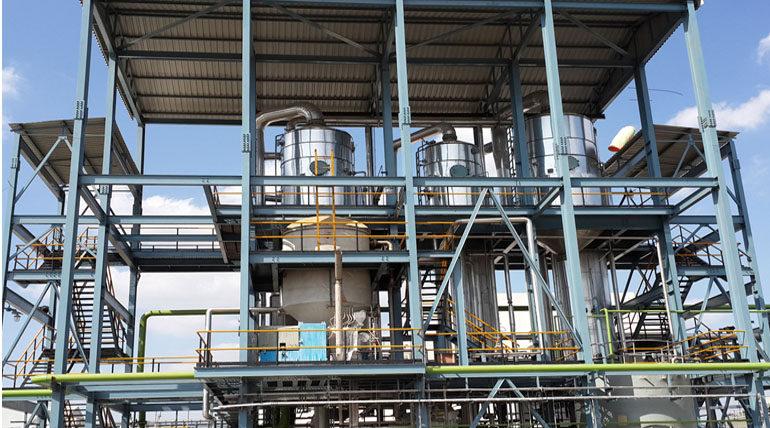
Power
KREYWIN meets the end-to-end needs for power plants from design to manufacturing, installation and support. Highly efficient systems are designed and built to use water from different sources - river, sea, treated waste water. Our systems meet the highest of water quality parameters and efficiencies of heat and recovery technologies.
The power industry is one of the largest consumers of water, for all its operations, boiler feed, cooling towers, scrubbers, etc. Improved water quality and low water loss are prerequisites for operational excellence and environmental conservation. In addition to total dissolved solids (TDS), the focus is on the determination of concentrations of ions, such as sodium, chloride and silica, among others. The need for automation is growing to better control complex water treatment systems.
Solutions include:
- Raw water treatment
- Boiler make up water treatment - UF/DM/RO/SWRO
- Condensate and cooling water treatment programmes
- Waste water treatment and recycle to achieve zero discharge
- Comprehensive O&M of complete water systems and build-operate-transfer (BOT) projects
- BOT for upgrading/retrofitting of plants
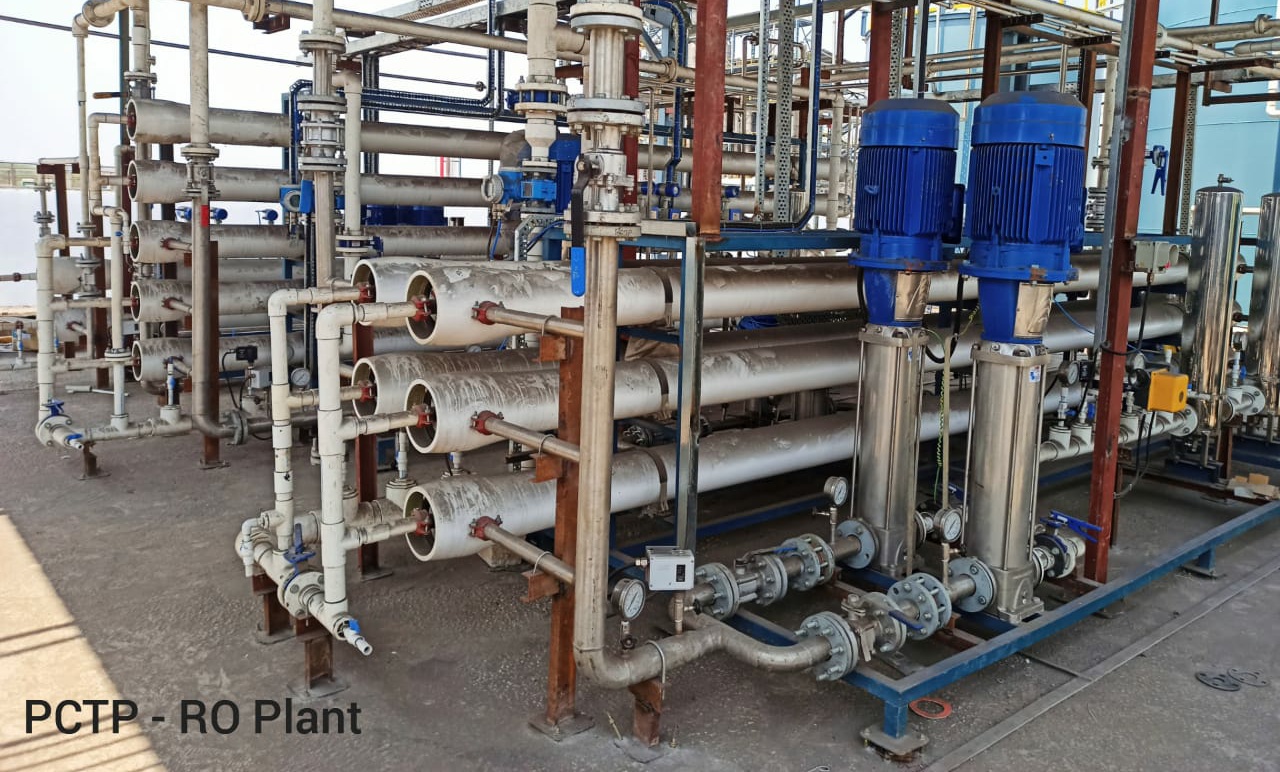
Oil And Gas
KREYWIN has been the preferred vendor for Oil & Gas end-users, lump sum turn key (LSTK) contractors and consultants. KREYWIN solutions not only cater to the conventional water treatment requirements but also offer high water and energy recovery. We constantly look at ways to reduce the overall water demand through design and water reuse. The systems designed by KREYWIN improve profitability and reduce risk of the project, in line with regulatory requirements.
The oil and gas industry relies heavily on freshwater for its operations. A challenge facing the industry is to reduce fresh water use per barrel of oil or natural gas produced, called water use intensity. The majority of water used by the industry can be recycled and reused multiple times, thereby reducing the demand for fresh water from natural sources.
KREYWIN can design and construct a broad product line for the industry that includes vapor compression, reverse osmosis, potable water pressure sets and waste heat recyclers to meet the need of fresh water in the oil and gas industry. We can improve reliability and life cycle costs to ensure owners and operators that use our system have a competitive edge and a reputable source of clean water.
We provide water management for every requirement in the Oil & Gas industry
- Raw water treatment
- Boiler make up water treatment - UF/DM/RO/SWRO
- Condensate and cooling water treatment programmes
- Waste water treatment and recycle of process streams and cooling tower blow down/utility waste water, to achieve zero discharge
- Comprehensive O&M of complete water systems
- BOT for Upgrading/retrofitting of plants
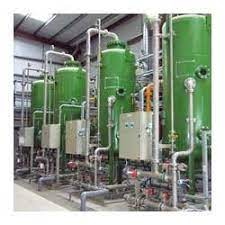
Chemical And Fertilizers
KREYWIN innovative and technologically advanced solutions combined with its experience, help chemical and fertilizer manufacturers adhere to environmental emission norms, reduce pollution and generate cost effective process water. Our solutions are efficient, effective and treat the complex effluents generated in the chemical and fertilizer manufacturing process. We do this by investing and devising hybrid technologies for effective separation of pollutants and minerals - organics and inorganics; engineer designs, evaluate suitable methods, materials and processes and assay process viability under various conditions.
Water contributes to almost every part of the manufacturing process in the chemical and fertilizer manufacturing industry. The chemical and fertilizer manufacturing industry has recorded the maximum water consumption trend amongst other manufacturing sectors, and treatment of wastewater generated has the highest complexity and criticality. Wastewaters from the chemical fertilizer industry mainly contain organics, alcohols, ammonia, nitrates, phosphorous, heavy metals such as cadmium and suspended solids.
With the increasing scarcity of fresh water, several manufacturing facilities in the segment face closure due to its non-availability. Chemical and fertilizer manufacturers are also facing closure due to non-compliance with increasingly stricter regulations on discharged water.
Solutions for the chemical and fertilizer industry include:
- Integrated total water and waste water treatment solution
- Zero Liquid Discharge solutions
- Condensate polishing units for efficient water usage
- Boiler feed water treatment
- Cooling tower water make-up
- O&M of total water and wastewater treatment plants
- Retrofitting of existing water treatment facilities with technology upgradation
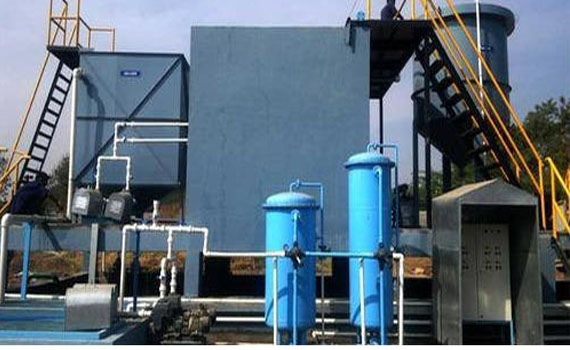
Pulp And Paper
KREYWIN offer cost effective, innovative technologies to treat water for process use as well as to reduce and recycle wastewater to achieve zero discharge. KREYWIN understands the need for optimum solutions that meet manufacturing requirements, reduce environmental effects and to do it economically. We do this through new treatment technologies, and reuse and resource recovery strategies. KREYWIN offers water reuse systems that are customized to a specific mill and its products based on substances that build up in reused process water that can be otherwise harmful to equipment and degrade product quality.
Pulp and paper companies are adjusting their goals to be more environmentally conscious. With the increasing stress on fresh-water availability and calls to reduce water usage further, paper mills are under pressure to adapt their processes to ensure they are efficient to reduce their waste. The industry is attempting to achieve this at a conservative cost, which can make a water-reduction strategy all the more challenging. Mandated wastewater disposal regulations are increasingly stringent, requiring zero discharge and treatment of wastewater.
KREYWIN total Solutions for water loop closure and zero liquid discharge include:
- Pre-treatment
- Process water treatment
- Boiler feed & cooling water treatment programmes
- Waste water treatment and recycle to achieve zero discharge
- Comprehensive O&M of complete water systems and BOT projects
- 24/7 service support
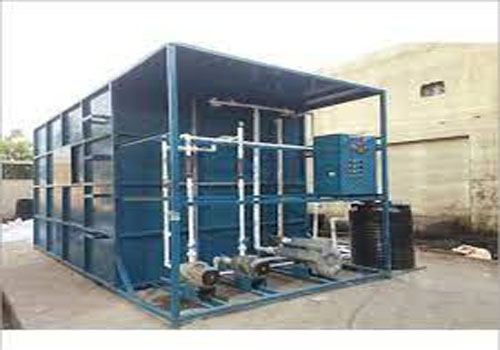
Automobiles And Ancillaries
KREYWIN designs and develops treatment schemes that combine proven traditional and modern technologies for high-quality process water, wastewater treatment, recycle and zero discharge plants. KREYWIN’s engineering keeps in mind the complex requirements in the automotive manufacturing segment. We take a serious view of the cost of water from its purchase price through handling, heating, holding, treating and discharging. We look to find means to reduce water and energy costs.
Major water uses in the automotive manufacturing industry includes surface treatment and coating, paint spray booths, washing, rinsing, hosing, cooling, air-conditioning systems and boilers. The component manufacturing segment has its own list of water-intensive processes. In addition to the use of water for these processes, there is the matter of wastewater, which then needs to be treated to high standards in order to meet environmental regulations..
Our range of solutions and services
- Water treatment for process and human consumption
- Boiler and cooling water chemical treatment
- Zero discharge of effluent, boiler blowdown and utility waste
- Treatment of oily waste
- Packaged vehicle wash recycle systems
- Comprehensive O&M for complete water systemss
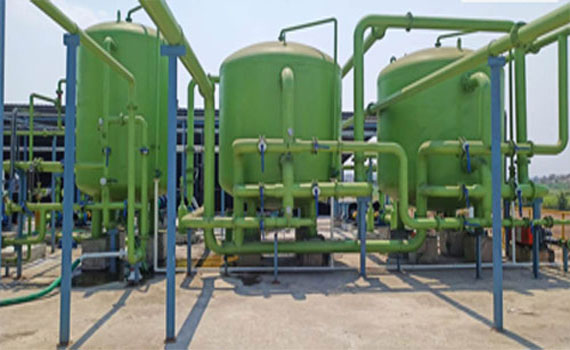
Commercials And Institutional
KREYWIN has solutions that meet the needs of hospitality, realty, education, railways, defence, medical and healthcare establishments. We provide them with safe drinking water and wastewater management. KREYWIN offers the latest in treatment technologies – the Membrane bio-reactor (MBR) for sewage treatment plants. The MBR requires minimal space for installation as compared to conventional sewage treatments. This technology reduces land utilization, thereby reducing the direct cost for a sewage treatment plant. MBRs are ideal for greenfield projects and to augment or replace existing “high-space” and “energy-consuming” moving bed bio film reactor (MBBR)and sequencing batch reactor (SBR)plants.
Commercial and institutional establishments face a tremendous challenge in terms of getting an environmental clearance due to the stringent wastewater treatment and disposal norms set by environmental agencies. The segments dependency on access to fresh water, that is in short supply the world over, have encouraged them to recycling wastewater and sewage generated within their facilities.
Our typical range of water treatment solutions include:
- Water for drinking and use in kitchens and canteens
- Softened water for bathing and laundry
- Management of heating and cooling water circuits with specialty chemical treatment
- Swimming pool water filtration and disinfection
- Sewage treatment and recycle
- Comprehensive O&M for complete water systemss
Apart from these systems, we have purpose specific solutions for water applications in medical, laboratory and hospitals.
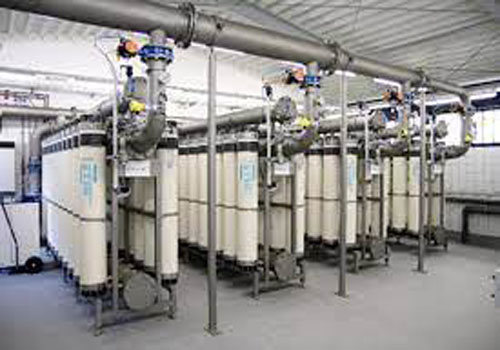
Food And Beverages
From creating clean and reliable water with its water treatment plant to treating wastewater prior to reuse or discharge, KREYWIN is well placed to serve this industry. KREYWIN treatment systems meet the most rigorous requirements for disinfection and purification with technologies like aqua disc, softening, membrane filtration (ultra filtration, nano filtration and reverse osmosis), and UV/Ozone disinfection to handle water as a food ingredient, or for cleaning in place or for boiler feed. KREYWIN treats wastewater sustainably, generates energy that leads to a reduction in energy expenditure and achieves zero liquid discharge (ZLD).
The food and beverage industry are becoming ever more demanding from their water & wastewater treatment plants in terms of Safety, Quality, Economy and Environmental impacts. Water is a crucial component for the industry. It is used in many parts of day-to-day operations, from cleaning raw materials to the incorporation of recipes. Water needs to be treated to ensure quality doesn’t affect the production process. Once used, all water leaving the plant must be treated to meet discharge limits set by environmental regulators.
Solutions for total water management include
- Water treatment
- Cooling and boiler water chemical treatment programmes
- RO Antiscalant (NSF certified)
- Wastewater treatment and recycle
- O&M and BOT systems for all water systems and utilities

Pharmaceuticals
We design our product and performance commitments, both environmentally and economically, based on an integrated and collaborative approach that is implemented across the product life cycle. Pharmaceutical water treatment systems from KREYWIN produce potable, purified and highly purified water and water for injection. The water from the systems we provide are used for manufacturing, washing and testing as a raw material.
In order to mitigate potential water shortage risks and gain greater water security, we help pharmaceutical companies implementing strategies that facilitate higher water efficiency. The water we process meets regulatory and industrial specifications, ensuring that our customers follow all regulations and documentation requirements.
The pharmaceutical industry’s waste streams can be highly complex and because of the broad differences in materials, processes and source waters used in chemical manufacturing, the resulting wastewaters can exhibit a considerable amount of variation in terms of volume, quality, and composition. Diminishing water supply is particularly disruptive to the pharmaceutical industry that relies on high quality process water for use in manufacturing.
Given the shortage of water supplies and the harmful nature of the effluent, it is important to consider various wastewater sources and to critically assess the best possible technologies to eliminate them. No single technology will extract contaminants from wastewaters entirely. A combination of traditional treatment methods along with membrane reactors and advanced post-treatment methods that result in a hybrid wastewater treatment system is required. We optimize water management from design to service. Our solutions are highly versatile ranging from basic equipment supply to fully integrated solutions.
Solutions include high purity water generation and distribution for
- Hot water sanitising UFRO-EDI systems
- Demineralisers
- Ozonation for loop disinfection
- Water distribution systems

Textile
KREYWIN has extensive experience in wastewater treatment, recycle and zero liquid discharge in the textile industry and offers a reliable integrated solution to meet the industry’s needs. Our unique systems generate significant savings through the recycle of water and reduction of fresh water requirements, lower energy and chemical consumption and recovery of valuable by products. KREYWIN, is actively developing a variety of solutions around new wastewater treatment technologies such as membrane filtration systems, automatic variable filtration (AVF), advanced oxidation processes (AOP) and UV irradiation to meet anticipated treatment requirements.
The textile industry is the oldest, most diverse sector in the manufacturing world. It is dependent on water in all steps of manufacturing–de-sizing, bleaching, dyeing, neutralizing, scouring, mercerizing, printing and finishing. The industry consumes 80 billion cubic meters of water per year.
A larger problem however, is the resulting water pollution caused by dyes, specialty chemicals, and finishing chemicals that are applied to fabrics in water baths. Stringent regulations today require that textile producers to approach zero liquid discharge (ZLD).
Our current solutions include
- Pre-treatment and process water treatment
- Cooling and boiler water treatment programmes
- Waste water treatment and recycle of process, dye bath and rinsing water for zero liquid discharge
- Evaporation reject management
- Comprehensive O&M services for all water systems
- BOT for upgradation /retrofitting of plants
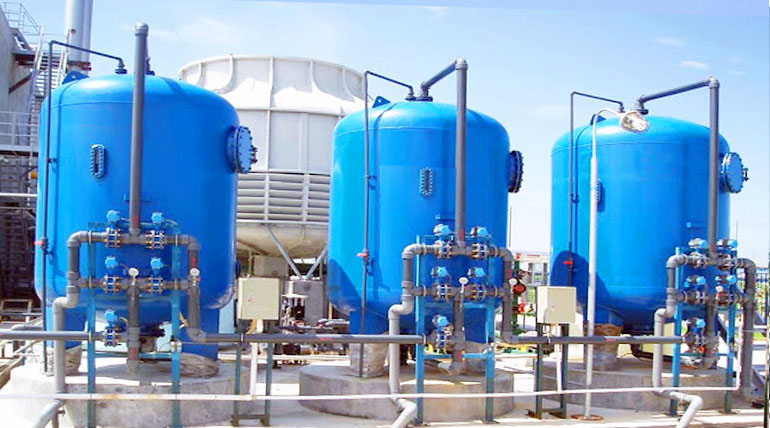
Cement
KREYWIN has extensive experience in designing, manufacturing, building, installing and supporting integrated wastewater and process water treatment for the cement industry. Our in-depth knowledge of cement manufacturing covers all processes, raw materials, and storage, and empowers us to design highly efficient systems that process, recycle and reuse water and waste water. We offer reliable integrated solutions to meet the industry’s needs. Our unique systems generate significant savings through the recycle of water and reduction of fresh water requirements, lower energy and chemical consumption and recovery of valuable by products. KREYWIN helps cement manufacturers to design systems that removes and disposes contaminants from waste water.
While cement manufacturing is largely a dry process, the cement industry is still dependent on water for maximizing the performance of utilities systems such as oil cooling, compressor inter cooler cooling and steam generation. Water is required for cooling heavy equipment and exhaust gases, in emission control systems such as wet scrubbers, as well as for preparing slurry in wet process kilns. Process waste water has a high pH and suspended solids. This water is generally used for cooling and is recycled and reused in the process.
We offer
- Water treatment
- Waste water treatment and recycle to achieve zero discharge
- Cooling and boiler water chemical treatment programmes
- O&M and BOT systems for all water systems and utilities
- 24/7 service support
25, Ojo Olagun close, off Bishop Oluwole st,
Victoria Island Lagos Nigeria
